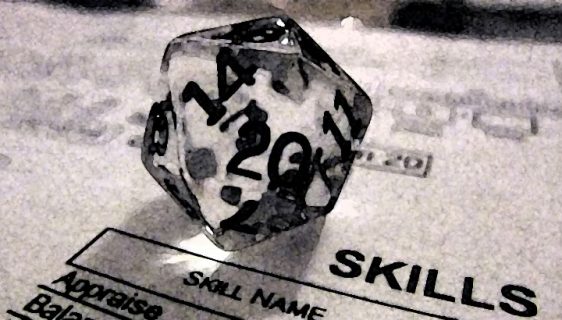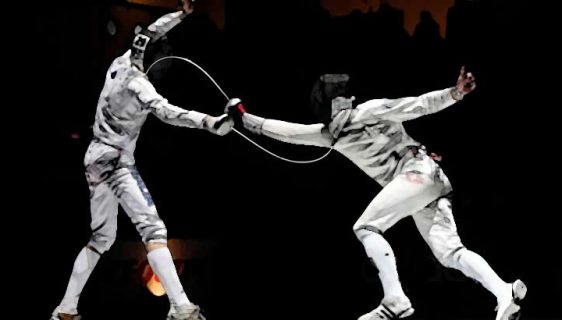Sometimes it can be fun to take a common trope and twist it. Keep enough of the core idea to guide some mechanical decisions, but take one part of the trope and go in a completely different
Geek and Sundry recently put out a tutorial for a home-made dungeon screen that looked like a castle. It made me want to get crafty. I normally don't use screens though, so I thought about
In Skill Challenge Encounters, Part 1, I introduced the challenge encounter framework that I use in my games. It works in practice, but the downside is that players really only have a couple
A skill challenge is an encounter-style framework for non-combat encounters. It has turn-based play, but no grid or minis. D&D 4e formalized a structure for it, although I think they dropped it
Previous: Chapter 4: The Last Meal Wild beast, huge man, and he’s coming for me by name? That narrowed down the possibilities somewhat, but I wasn’t liking any of the ones that were
If you’re a new GM, you may read through all the rules of whatever system you're planning to play and yet still feel unready or wonder what the best way to GM is. If this is the case, let me
Originally published in Worldbuilding Magazine (Volume 2, Issue 4) "Creatures", p 18. If you have ever wanted to see inside the mind of a game master (GM) while she creates a fantasy ecosystem
To the person in another thread who argued with me that a classic D&Desque, high fantasy setting requires requires a sexist society for because of your sincere need for realism and internal
Previous: Chapter 3: In the Room with Ralph I must have had a nightmare again that night, but I couldn’t remember any of it when I awoke. Just a a sudden awakening, like I had fallen, and my
In traditional 4e, the skill system is a simple closed, point-buy system. There is an enumerated list of non-combat abilities (skills), and you invest in a subset of them by choosing which skills









